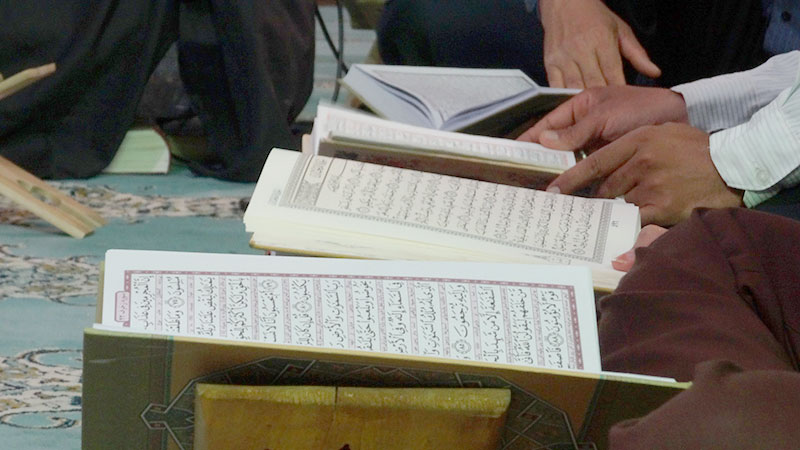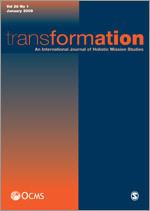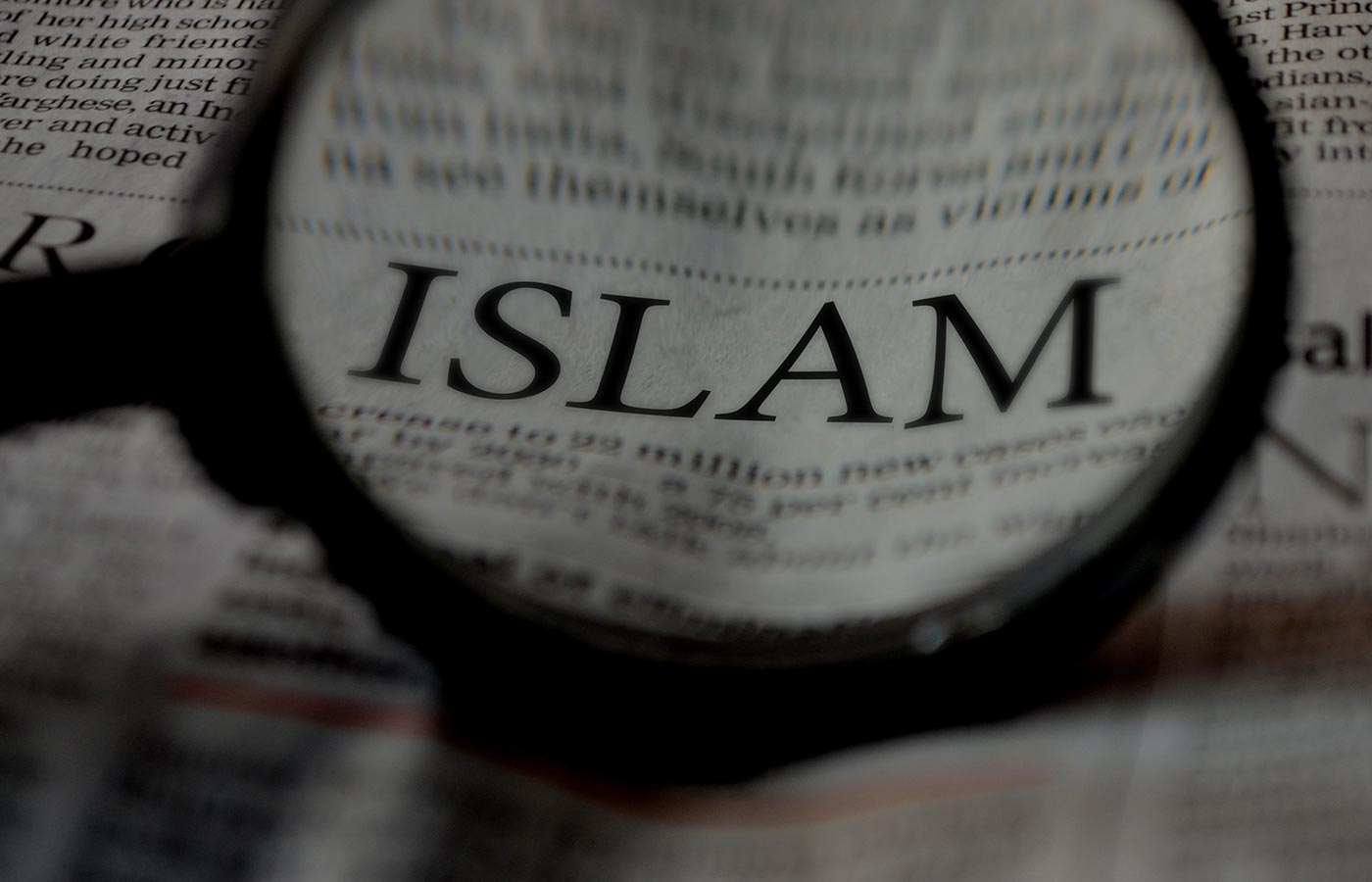The March issue of the Lausanne Global Analysis included an article entitled ‘Why Grace is not Enough to Reach Muslims: Balancing grace and truth in outreach’.[1] The author, Jenny Taylor, was critical of some writers like Colin Chapman, arguing that they emphasise the need for grace in approaching Muslims at the expense of truth, downplaying the differences between Islam and Christianity and refusing to engage ‘the dark side’ of Islam.

In this article, Colin Chapman and John Azumah, the co-catalyst of the Lausanne Islam Network, suggest that there are other ways of thinking about Islamism and violence in the name of Islam.
We must allow Muslims to define what is ‘true Islam’ and remember Muslims are not all the same
Many Christians in the West think that they are in a position to know what Islam is, and that the jihadi Islam of Islamic State (IS) is nearer to ‘true Islam’ or ‘real Islam’ than so-called ‘moderate Islam’. When there have been so many recent examples of jihadi violence in different countries, it is easy to conclude that it tells us something about the essential nature of Islam.
Many Muslims have sympathy—either openly or secretly—with some of the objectives of political Islam, or ‘Islamism’. However, the vast majority dissociate themselves from jihadism and regard it as a complete distortion of Islam.[2] So we must be willing to listen to Muslims and allow them to tell us what Islam is for them. We may well want to challenge them over the Qur’anic verses about jihad and warfare if they think that these justify violence today, but we have no right to think that we know better than they regarding what is ‘real Islam’.
We must allow Muslims to dissociate themselves and their faith from the violence of the jihadis
This is perhaps one example of how the Golden Rule—treating others as we ourselves would like to be treated—should work out in practice. When Muslims challenge us about difficult issues, like the Crusades or same-sex marriage, many of us inevitably want to dissociate ourselves from beliefs or practices of other Christians which we think are misguided. So in the same way, we must allow Muslims to dissociate themselves and their faith from the violence of the jihadis.
We may find their arguments unconvincing. However, even more unconvincing is the suggestion that the interpretations of Islamic texts given by Abu-Bakr al-Baghdadi of IS and Abu-Bakr Shekau of Boko Haram are more representative of ‘true’ Islam than those of all the leading Muslim scholars around the world who condemn and reject such views.
Does this approach amount to ‘imposing reality’ on Islam, ‘Anglicising’ it, or making their ideas ‘familiar, and therefore comfortable to handle,’ as Taylor suggests? Far from imposing our (outsider) interpretations on Islam, this approach does justice to the diversity of views expressed by Muslims at various points throughout Islamic history on many issues including war and violence. When we have listened carefully to all the sides, we may well want to engage in further ‘hard talk’; but we do so recognising the huge differences among them, and refusing to impose our understanding of what we think Islam really is.

Texts are important, but they cannot be considered in isolation
‘Textualism’ is the approach that seeks to explain ideas or actions primarily, if not essentially, by reference to texts. Islamic texts—especially the Qur’an, Hadith, the early biographies, Qur’anic commentaries, and legal texts—must clearly be taken very seriously:
- When jihadis in Iraq or Syria have offered Christians the choice between paying the jizya tax, conversion to Islam or death, they believe they are following the example of the Prophet and the first generations of Muslims as described in the earliest texts.[3]
- The writings of influential Muslims in the 20th century such as Abul A’la Mawdudi in Pakistan and Sayyid Qutb in Egypt clearly support supremacist ideas and have had a profound influence on both jihadis and more mainstream voices.
However, these views have not gone unchallenged by other leading Muslims.
We therefore need to take note of how mainstream Muslims today challenge the jihadi interpretations. They point out, for example, that the jihadis completely ignore and bypass the legal texts which were elaborated by the four schools of law over many centuries and laid down strict regulations about the conduct of jihad.[4] Tim Winter of Cambridge University uses this illustration to point out the difference of approach between jihadis and mainstream Muslim leaders: the jihadis are like people who observe the stars with the naked eye, while the others use a telescope to see the stars more clearly. The telescope of course represents centuries of theological and legal reflection on the Islamic sources, providing the lens through which they interpret them.[5]
All the Islamists who have turned to violence in recent years have done so in a particular context and in response to something that they perceive as an injustice.
Moreover, while texts are important, they cannot be taken in isolation from all the other factors which contribute to jihadism. All the Islamists who have turned to violence in recent years have done so in a particular context and in response to something that they perceive as an injustice, whether in Kashmir, Chechnya, Iraq, Syria, Israel/Palestine, or recent attacks in the West. Some of these factors are historical, political, social, economic, religious, and psychological. So while texts are important, we must also engage with the different contexts in which Muslims find themselves and the grievances which they harbour. We should be cautious about any reductionism that says ‘This is the main or the only cause of jihadi violence.’
Muslims from the very beginning worked for the territorial spread of Islam, and for centuries this was the basic meaning of jihad. The different expressions of Islamism in the modern period cannot be understood outside the context of Western interference in the Muslim world, the sterility and weakness of much traditionalist Islam, Zionism, the failure of pan-Islamism and Arab nationalism, and the military dictatorships which have become corrupt one-party states.
Most of the video messages left behind by suicide bombers hardly refer to Islamic scripture or traditions but to existential issues, most of which are political. Palestinian resistance to the colonial-settler Zionist movement, for example, has to be understood primarily in the context of their experience of displacement. Because most Palestinians are Muslims, it was inevitable that they would use Islamic ideology to support their struggle. However, the original problem was not Islam, but displacement.

The Transformation article[6] referred to by Taylor speaks of ‘nine examples of Islamist movements that used violence,’ and points out that in every case ‘there is something contextually specific—a perceived injustice.’ Without engaging any of these examples, Taylor minimises the importance of political issues when she says, ‘This is not necessarily true’. She then goes on to say that ‘two recent commentators attribute violence in the Levant to “testosterone” and sexual frustration’. These can certainly be added as additional explanations behind jihadi violence and included under the psychological factors, but they cannot be offered as an alternative explanation which bypasses the political factors.
Taylor quotes with approval several passages from Shiraz Maher’s Salafi-Jihadism: The History of an Idea, which explains how jihadis appeal to scriptural texts to support their actions. This same writer, however, is in no doubt about the importance of political issues in recent years:
All the major periods of ideational shift [in Salafi-Jihadism] have come in response to war. . . . The idea [of the need for political reform] was born from the colonial experience of Muslims in British India when theorists first began imagining how to secure God’s rights within the political system. . . . What becomes clear is that war and its associated nomenclature have driven intellectual changes within Salafi-Jihadism.[7]

Understanding jihadi violence does not mean justifying it
Taylor quotes a sentence from the Transformation article saying that it is not hard to understand ‘how some Islamists . . . can conclude—from their scriptures, dogma and history—that they have justification for turning to violence.’ She suggests that this sentence amounts to a justification of violence.
Understanding the motivation behind an action does not mean justifying that action. The goal of IS in Iraq and Syria was to establish an Islamic state led by a caliph who hoped that Muslims all over the world would unite and swear allegiance to him. If Muslims have always looked back to the first Islamic state established by Muhammad in Medina as a kind of golden age, it is not surprising when some of them want today to establish a thoroughly Islamic polity in which sharia is supreme.
Some jihadis who have come from Europe to join IS may have known little about Islamic ideology or the Qur’an, and may have seen fighting as a way of escaping from problems at home, finding their identity or proving their manliness. Some from Arab countries may have been motivated by anger directed at autocratic Arab governments and/or the West. Palestinian suicide bombers have been motivated by anger, despair, and no doubt the promise of instant access to Paradise. Trying to understand the many different motives that have driven these people to engage in violence does not mean justifying their murderous actions.
We too have our failings, and we need to find ways of addressing these problems within our own communities
Taylor quite rightly wants Christians to ‘face and engage “the dark side” of Islam’. However, focusing too much on this side of Islam can easily divert attention away from our failings and make us focus only on their failings. Such an approach tends to leave many Christians paralysed by fear, with defensive and suspicious attitudes that make it difficult to reach out and form relationships.
Throughout the world—and especially in the West—many Christians are very ignorant about Islam. We need to own up to our stereotypes of Muslims and our prejudices, both racial and religious. While not excusing violence, we may need to acknowledge that in some cases Muslims have good reason to be angry. Western Christians might also be much more critical of the policies of their governments that have contributed to conflicts in different countries. We cannot pretend that the rise of IS in Iraq and Syria has nothing to do with the invasion of Iraq in 2003 and the vacuum that followed.
Focusing too much on this side of Islam can easily divert attention away from our failings and make us focus only on their failings.
Taylor cites Mark Durie where he points to Ethiopia as ‘a testimony to the effectiveness of Christian resistance to jihad’. However, she does not mention that Ethiopia is best known in Islamic history as the place of refuge for the first wave of Muslim refugees in 615. This was a gesture that won Ethiopia a special exemption from official jihad for centuries, broken only by a 15-year stint of jihadi violence in the 16th century. Ethiopia, which has just appointed a Muslim Prime Minister, appears bent on turning away from the scourge of religious nationalism, which in fact brought as much hardship to Muslims as it did to evangelical Christians.
Taylor’s mention of the impact of the ministry of the lone Ethiopian seminary student is interesting. The student adopted the ‘grace’ approach that Taylor is questioning in her article, and did so at a time when the rest of the church had retreated into the bunker with the ‘truth’ approach. In times of fear and conflict, it is the compassion and courage exhibited by the lone seminary student that win the day; the grace approach is sufficient to reach Muslims (cf 2 Cor 12:9).
Endnotes
- Editor’s Note: See article by Jenny Taylor entitled, ‘Why Grace is not Enough to Reach Muslims’, in the March 2018 issue of Lausanne Global Analysis, https://lausanne.org/content/lga/2018-03/grace-not-enough-reach-muslims.
- See for example Martin Accad, ‘ISIS and the Future of Islam’, Institute of Middle Eastern Studies, 6 November, 2015. The Institute of Middle East Studies, based at the Arab Baptist Theological Seminary in Beirut, is at present engaged in a project to document all the pronouncements of Islamic institutions and conferences which have responded to the emergence of ISIS in 2014.
- Editor’s Note: See article by anonymous contributor entitled, ‘What is the Islamic Caliphate and Why Should Christians Care?’, in the May 2017 issue of Lausanne Global Analysis, https://lausanne.org/content/lga/2017-05/islamic-caliphate-christians-care.
- See the 2014 Open Letter to Al-Baghdadi signed by 126 leading Muslim scholars and figures from around the world.
- Abdel Hakim Murad (Tim Winter), Understanding the Four Madhhabs: The Facts about Ijtihad and Taqlid, The Muslim Educational Trust, London, 2012.
- Colin Chapman, ‘Christian Responses to Islamism and Violence in the Name of Islam,’ Transformation, 34:2 (March 2017), pp 115-30.
- Shiraz Maher, Salafi-Jihadism: The History of an Idea, Penguin, 2016, p 208.
